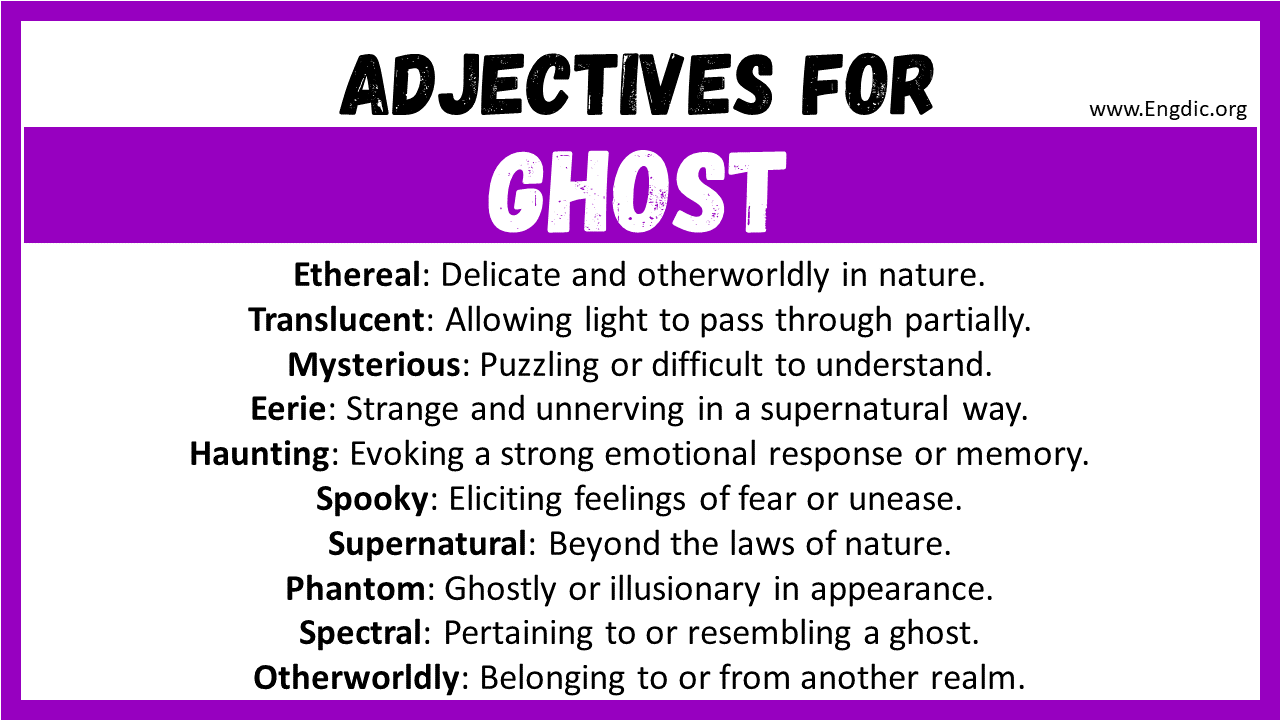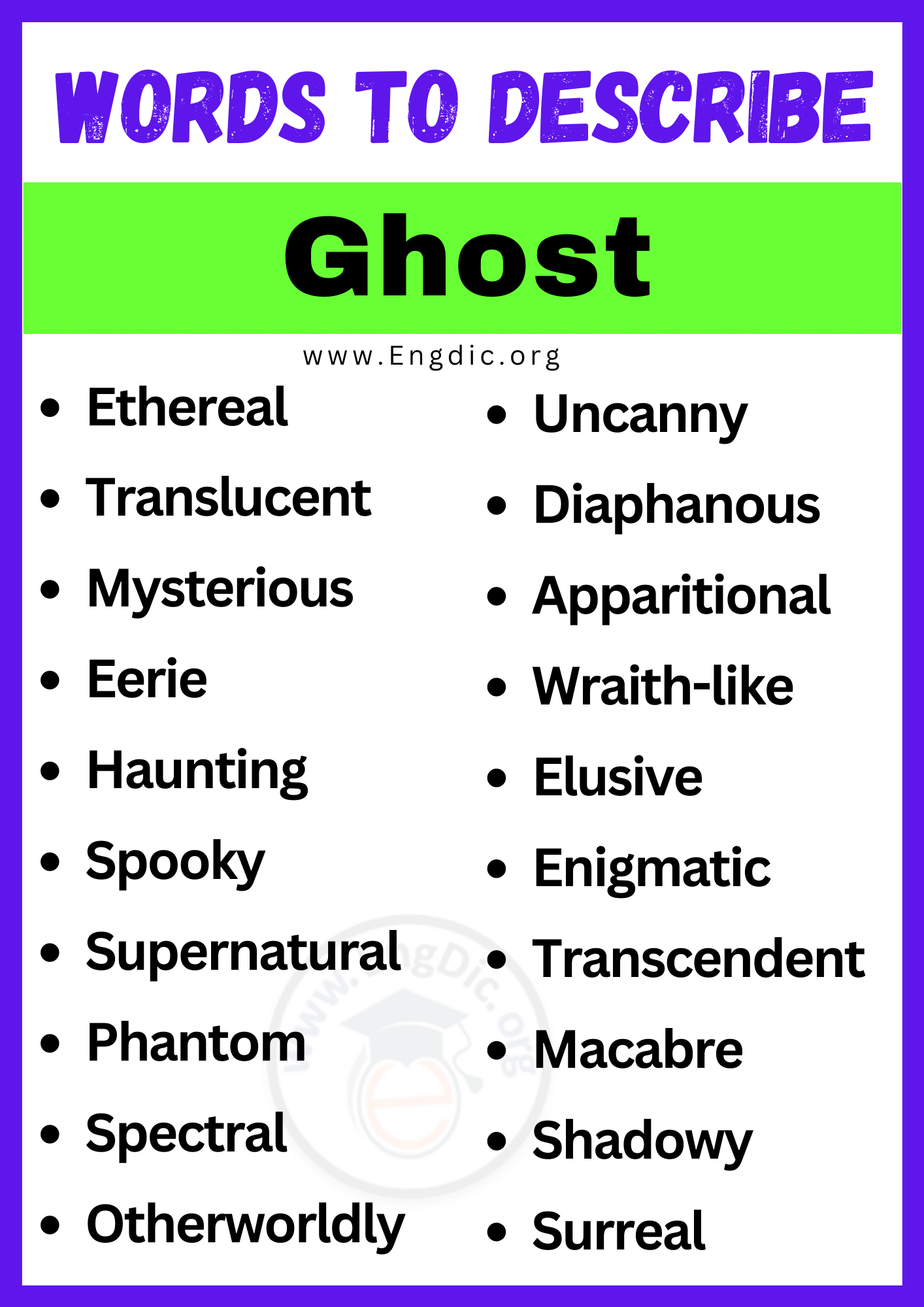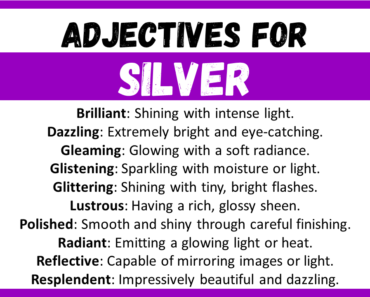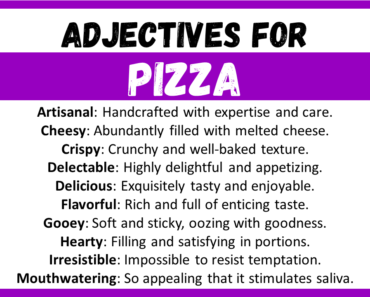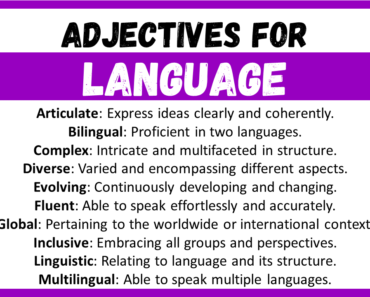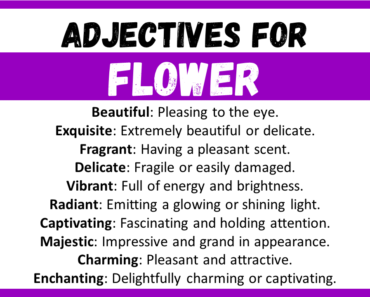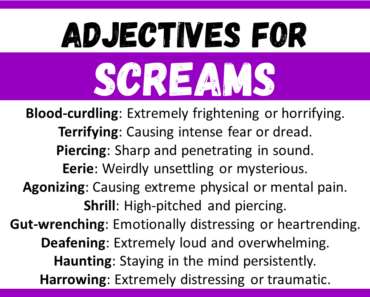Have you ever wondered what exactly a ghost is? Well, a ghost is often described as the spirit or soul of a deceased person that lingers on in the physical world. Fascinating, isn’t it? When it comes to describing these ethereal beings, several words come to mind. From eerie and ethereal to mysterious and haunting, the lexicon of ghostly adjectives is as diverse as the spectral entities themselves. In this blog post, we will delve into the world of ghostly vocabulary and explore the words that aptly capture the essence of these supernatural beings.
Adjectives for Ghost
Here are the 20 Most Popular adjectives for ghost:
- Ethereal
- Translucent
- Mysterious
- Eerie
- Haunting
- Spooky
- Supernatural
- Phantom
- Spectral
- Otherworldly
- Uncanny
- Diaphanous
- Apparitional
- Wraith-like
- Elusive
- Enigmatic
- Transcendent
- Macabre
- Shadowy
- Surreal
Adjectives for Ghost Stories:
- Spine-chilling
- Terrifying
- Haunting
- Eerie
- Mysterious
- Supernatural
- Creepy
- Suspenseful
- Hair-raising
- Ghostly
Adjectives for Ghost In Halment:
- Transparent
- Phantom-like
- Ethereal
- Translucent
- Apparitional
- Diaphanous
- Shadowy
- Otherworldly
- Spectral
- Wraith-like
Adjectives for Ghost Towns:
- Abandoned
- Desolate
- Forgotten
- Haunted
- Decaying
- Desolate
- Spooky
- Empty
- Derelict
- Isolated
Adjectives for Ghost Sounds:
- Haunting
- Ghostly
- Eerie
- Unsettling
- Spine-chilling
- Whispering
- Mournful
- Spectral
- Phantom
- Unearthly
Words to Describe Ghost with Meanings
- Ethereal: Delicate and otherworldly in nature.
- Translucent: Allowing light to pass through partially.
- Mysterious: Puzzling or difficult to understand.
- Eerie: Strange and unnerving in a supernatural way.
- Haunting: Evoking a strong emotional response or memory.
- Spooky: Eliciting feelings of fear or unease.
- Supernatural: Beyond the laws of nature.
- Phantom: Ghostly or illusionary in appearance.
- Spectral: Pertaining to or resembling a ghost.
- Otherworldly: Belonging to or from another realm.
- Uncanny: Strange or unsettling in an inexplicable way.
- Diaphanous: Lightweight and almost transparent.
- Apparitional: Relating to the appearance of a ghost.
- Wraith-like: Resembling a ghost or spirit.
- Elusive: Difficult to catch or understand fully.
- Enigmatic: Mysterious and puzzling in nature.
- Transcendent: Going beyond ordinary limits or existence.
- Macabre: Disturbing or dealing with death.
- Shadowy: Existing in or resembling a shadow.
- Surreal: Strange and dreamlike, beyond reality.
Example Sentences for Ghost Adjectives
- The ethereal mist floated gracefully through the forest.
- The moon cast a translucent glow through the window.
- The old mansion held a mysterious secret.
- The abandoned amusement park had an eerie atmosphere.
- The haunting melody lingered in my mind.
- The dark alley was filled with spooky shadows.
- She claimed to have witnessed a supernatural phenomenon.
- The phantom figure vanished into thin air.
- The spectral image appeared for a brief moment.
- The ancient artifact had an otherworldly aura.
- The coincidence was uncanny and sent shivers down my spine.
- The ballerina’s dress was diaphanous as she twirled.
- They recounted their encounter with an apparitional being.
- The wraith-like figure drifted silently through the graveyard.
- The treasure remained an elusive secret.
- The Mona Lisa’s smile is enigmatic and captivating.
- The music created a transcendent experience, taking me to another realm.
- The horror movie had a macabre and unsettling atmosphere.
- The shadowy figure lurked in the dimly lit alley.
- The painting depicted a surreal dreamscape with floating objects.
Explore More Words:
FAQ’s
How to describe explorers in writing?
Explorers can be described as courageous individuals who embark on adventurous journeys in search of new discoveries and knowledge.
Why is Ghost so famous?
Ghost is famous due to its captivating storyline, supernatural elements, and emotional depth, which resonates with audiences and leaves a lasting impact.
Is a ghost story a sad movie?
Not necessarily. While some ghost stories may have elements of sadness or tragedy, the genre itself can encompass a wide range of emotions, including fear, suspense, and even moments of hope or redemption.
